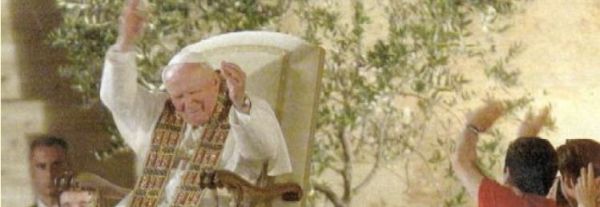In the eschatological fulfillment mercy will be revealed as love, while in the temporal phase, in human history, which is at the same time the history of sin and death, love must be revealed above all as mercy and must also be actualized as mercy. Christ's messianic program, the program of mercy, becomes the program of His people, the program of the Church. At its very center there is always the cross, for it is in the cross that the revelation of merciful love attains its culmination. Until "the former things pass away," the cross will remain the point of reference for other words too of the Revelation of John: "Behold, I stand at the door and knock; if anyone hears my voice and opens the door, I will come in and eat with him and he with me." In a special way, God also reveals His mercy when He invites man to have "mercy" on His only Son, the crucified one.
Christ, precisely as the crucified one, is the Word that does not pass away, and He is the one who stands at the door and knocks at the heart of every man, without restricting his freedom, but instead seeking to draw from this very freedom love, which is not only an act of solidarity with the suffering Son of man, but also a kind of "mercy" shown by each one of us to the Son of the eternal Father. In the whole of this messianic program of Christ, in the whole revelation of mercy through the cross, could man's dignity be more highly respected and ennobled, for, in obtaining mercy, He is in a sense the one who at the same time "shows mercy"?
[Pope John Paul II, Dives in Misericordia n.8]












